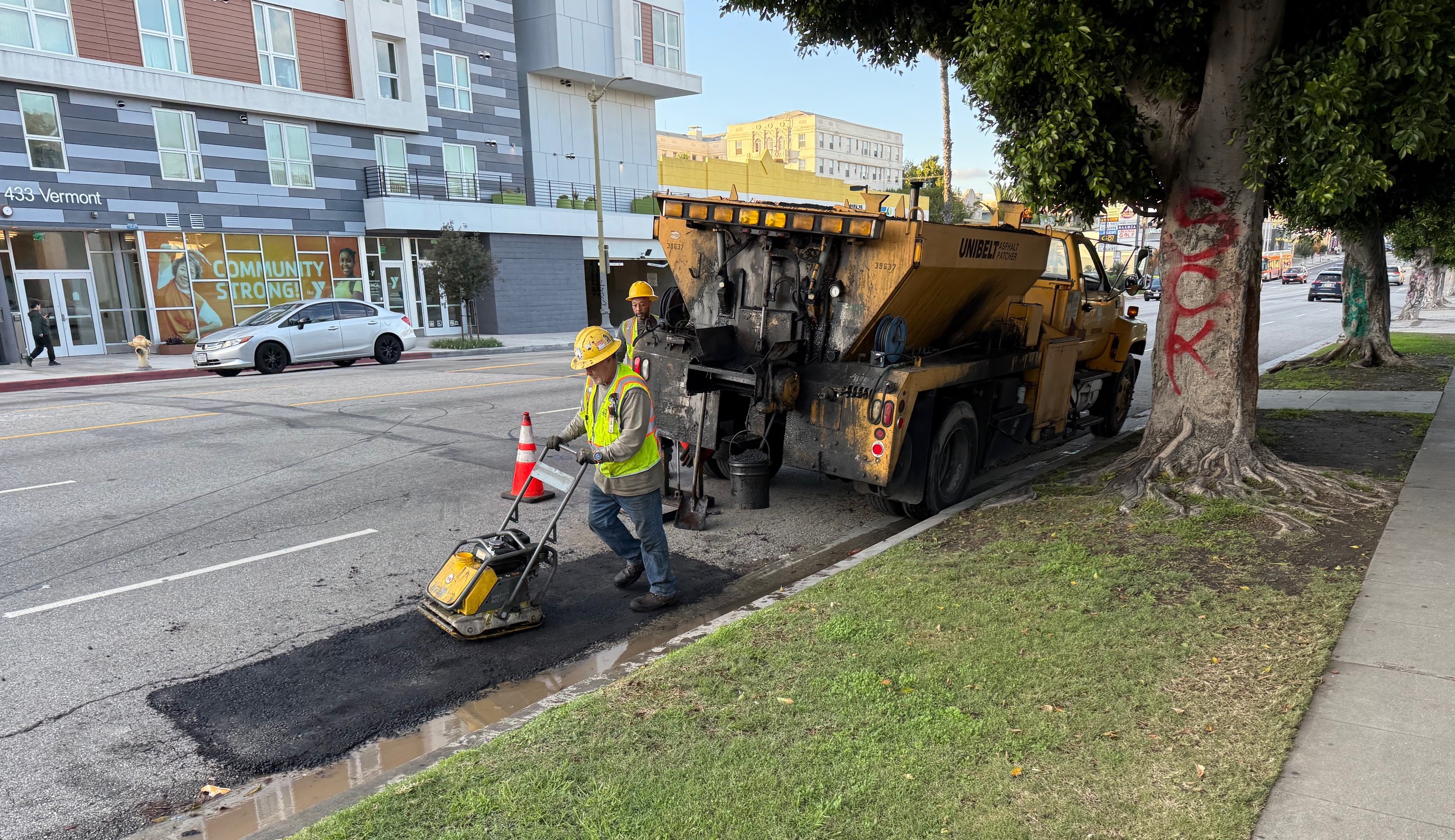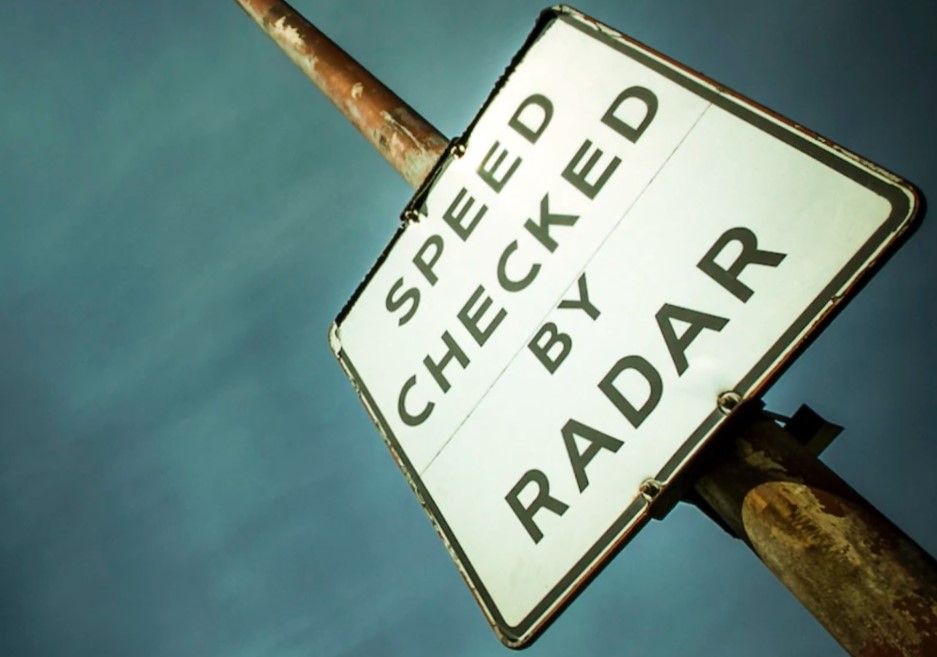Ramming highways through the middle of American cities was undoubtedly one of the worst mistakes of the 20th century -- demolishing urban habitat, dividing neighborhoods, and erecting structures that suck the life out of places. What could be worse than a highway through the middle of town? How about when two highways intersect, with all their assorted high-speed ramps carving out huge chunks of land to move cars.
But despite their massive scale and the huge sums we spend on them, highway interchanges in American cities can seem invisible. After all, no one ever goes to hang out by the interchange.
So, to give you a good look, we put together this list of some of the most enormous interchanges in U.S. cities. Just imagine what cities could do with all this space...
Louisville: Kennedy Interchange (64/65/71)

Louisville's Kennedy Interchange sits just north of downtown, forming an immense barrier to the city's waterfront. Gigantic as it may be, this interchange will be getting even bigger as Kentucky and Indiana move forward with the $2.6 billion Ohio River Bridges project. Even the New York Times lamented the effect of this highway expansion on downtown neighborhoods. But when Louisville activists argued that a portion of the roadway feeding into the interchange should be torn down, they were steamrolled by powerful political interests.
Milwaukee: Marquette Interchange (94/43/794)
Rebuilding and expanding Milwaukee's Marquette Interchange, located not far from downtown Milwaukee by Marquette University, cost $810 million to complete in 2008. It took 2.25 million man hours to construct the 28 ramps and 21 miles of roadway. The concrete and steel needed to complete the project weighed 60,000 tons, according to the Milwaukee Journal Sentinel.
To 1000 Friends of Wisconsin, this interchange expansion was a "billion dollar blunder." Meanwhile, the Federal Highway Administration gave the project its "Award of Excellence in Highway Design." Wisconsin is currently preparing for an even bigger interchange project: the $1.7 billion "Zoo Interchange," not far away.
Los Angeles: Pregerson Interchange (110/105)
LA's Pregerson Interchange was completed in 1993 at a cost of $135 million. At the time it was the most expensive "traffic structure" Caltrans had ever built. The LA Times called it a "five-level maze of soaring and curving freeway lanes." It includes nine miles of cloverleaf loops and is a mile and a half wide, a gargantuan pile of concrete looming over some of the city's poorest neighborhoods.
San Diego: I-5 and CA-163

This interchange in San Diego is mostly tragic for its location, just on the border of Balboa Park, San Diego's "crown jewel," according to BikeSD's Sam Ollinger. Despite the near constant congestion, the interchange is at least scenic, drivers say. But good luck getting to the Art and Space Museum on foot from downtown.
Columbus: I-670 and I-71
The intersection of I-670 and I-71 in Columbus completely isolates part of the city bordering downtown and Columbus State Community College. Within the tangle of ramps is a school for the arts and a parking facility for Columbus Public School buses.
Construction to expand to the interchange began in 2011. The $200 million project includes the construction of 22 bridges, plus a "cultural wall designed with community input." The project is part of a larger, $556 million rebuilding of three major interchanges by downtown. "It's a once-in-a-lifetime project," an ODOT official told the local business publication.
Detroit: I-375 and I-75
Streetsblog showed the damage done to east Detroit by I-375 in this compelling series of photos. This whole area was once a densely populated neighborhood of walkable blocks, home to much of the city's African-American population. Downtown Detroit is completely surrounded by highways, forming a noose around the city. This interchange separates downtown Detroit from the Eastern Market, a major regional attraction.
The good news is there has been talk in Detroit of tearing out I-375. The road needs expensive repairs and the least costly option is being considered: replacing it with a pedestrian-friendly parkway.
Seattle: I-90 and I-5

Just outside downtown Seattle, the I-90/I-5 Interchange is a tangled mass of traffic. More than 1,600 people have "checked-in" at this location on Foursquare. "This sucks," says one. "Nice shrub on the southbound side," says another.
Seattle's anti-highway activists halted a freeway expansion here in the 1970s, leaving behind "ramps to nowhere" that had been built in anticipation of future road construction. Some of those ramps were eventually incorporated into this interchange.
Chicago: Circle Interchange (90/94/290)
This circular interchange merges the Dan Ryan, Kennedy, and Eisenhower expressways, just west of Chicago's Loop. The Blue Line's L train tracks pass under the interchange.
Constructed in the late 1950s and early 1960s, the Circle Interchange will be rebuilt and expanded in a $400 million project that the Illinois Department of Transportation recently rammed through, even though it never made the regional planning agency's list of high priorities.

















